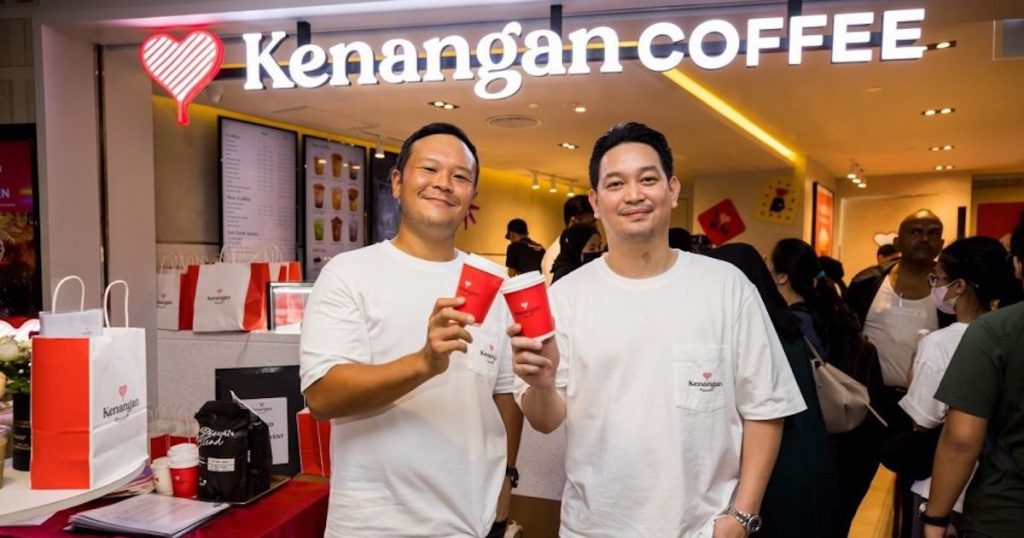The local coffee scene is experiencing a surge, thanks to tech-savvy startups like ZUS Coffee, Flash Coffee, and Kopi Kenangan.
These brands are not just serving up caffeine; they’re redefining the coffee experience through technology and innovation in the Southeast Asia market.
Recognising a gap in the market
The idea for these startups emerged from a noticeable gap in the market.
On one hand, there were convenience store coffees, offering quick, affordable options. On the other, premium coffee chains provided a more upscale experience. However, there was a void for high-quality coffee at accessible prices.
“We saw a market for good quality coffee at an affordable price,” said ZUS Coffee COO Venon Tian during a panel at the Tech in Asia Conference 2024.
“There were many independent coffee shops, but no single chain offering consistent quality and accessibility.”
Flash Coffee CEO David Brunier points out the massive market potential in the Asia-Pacific (APAC) region. With roughly 100 stores in Indonesia and Thailand, Flash Coffee is tapping into a high-growth market with a significant opportunity for expansion.

David noted, “The average coffee consumption per capita here is still far from maturity compared to Europe or the United States, which means there’s a huge opportunity for growth.”
Leveraging technology
Technology has been a game-changer for these startups. Mobile apps allow customers to order ahead, skip queues, and earn rewards. However, the benefits extend beyond customer convenience.
“Technology helps us understand our customers better,” explained Venon. “We can track purchasing behaviour, location, and preferences to tailor our offerings and marketing efforts.”
David also added that Flash Coffee uses technology to enhance the customer experience and streamline operations, ensuring efficiency and profitability.
He emphasised the importance of understanding and reaching customers through data-driven approaches, enabling personalised marketing and improved customer retention.
Echoing the same sentiment, Kopi Kenangan leverages technology to enhance both customer and operational experiences. For instance, they have a dedicated system which helps baristas order raw materials efficiently, reducing mistakes and waste.

James Prananto, co-founder of Kopi Kenanagan, said they also use digital tools for store reporting and maintenance, ensuring smooth operations. Additionally, their app increases customer engagement by encouraging repeat visits and larger purchases.
The importance of localisation
While technology is a crucial tool, these startups agree that product quality and customer experience are paramount. Hence, all these three companies stressed the importance of localisation when expanding to other regions.
“We’re constantly innovating our menu. Understanding and meeting customer preferences is key to driving sales and loyalty,” David shared during the talk.
James highlighted the importance of localisation. “We adapt our products to suit local tastes while maintaining our brand identity. Hiring local teams helps us understand the market better.”
He shared that Kopi Kenangan’s hero product, Kenangan Latte, features a unique blend of milk, palm sugar, and special creamer, catering to local preferences.
Meanwhile, Venon mentioned that ZUS Coffee adapts its menu to local tastes, introducing flavours that resonate with each market. For example, in the Philippines, they launched an Ube series, a local favourite.
The role of store design
In terms of store design, ZUS Coffee and Kopi Kenangan prioritise efficiency and accessibility.
Maintaining the focus on efficiency, Venon said, “Our model is not a traditional third space model. We prioritise operational efficiency over extensive seating areas.”
“We want to be the go-to coffee shop for everyone. Our brand is about enjoying great coffee without breaking the bank,” he said.

James agreed, saying, “Our stores have evolved from small kiosks to more comfortable spaces. We want customers to enjoy their coffee and have a pleasant experience.”
However, David is taking the traditional route of offering a pleasant surprise to its customers.
“We used to have very small stores, but we realised that customers also appreciate a space to relax,” he said. “We’re now opening larger stores with more seating and amenities.”
Challenges and opportunities
While the coffee market presents significant opportunities, these startups also face challenges. Competition is increasing, and consumer preferences are constantly evolving.
“The key is to stay agile and adapt to changing market conditions,” said Venon. “We need to continuously innovate and improve our offerings.”
David added, “Building a strong brand and cultivating customer loyalty is essential. We must focus on providing exceptional customer experiences.”
James emphasised the importance of talent acquisition. “Finding and retaining skilled employees is a challenge. We invest in training and development to build a strong team.”

What’s next for these startups
With the coffee market still growing, these startups have ambitious plans. Kopi Kenangan is expanding its reach with a more affordable brand, Satu Kenangan, targeting a wider market segment.
ZUS is focusing on strengthening its position in Malaysia and exploring new verticals. Flash Coffee is expanding its store size to offer a more complete brand experience while maintaining its grab-and-go focus.
All three companies are exploring ways to reduce reliance on human labour through automation and technology. Additionally, they are considering international expansion, particularly in Southeast Asia.
The future of the coffee industry looks bright, with these tech-driven startups leading the charge. By combining quality products, innovative technology, and a deep understanding of their customers, they are shaping the future of coffee consumption.
As the market continues to evolve, these startups will play a crucial role in determining the trends and preferences of coffee lovers. Their success will likely inspire other entrepreneurs to enter the industry too, leading to even more innovation and competition, and ultimately, better choices for us consumers.
- Learn more about Tech in Asia Conference 2024 here.
- Read other articles we’ve written about Malaysian startups here.
Also Read: Meet the startup that powers the backbone operations of over 7K M’sian F&B outlets
Featured Image Credit: Vulcan Post










